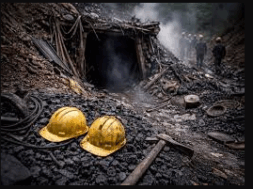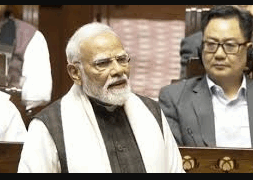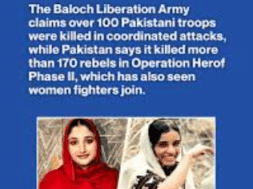
Manas Dasgupta
NEW DELHI, Sept 2: Amidst studied silence from the BJP-led NDA government at the Centre, the Rashtriya Swayamsevak Sangh (RSS) on Monday backed the caste census as demanded by many opposition parties but sounded caution that the data of the exercise should be handled with seriousness and not misused for elections and other political purposes.
“The collection of caste data has been a prevalent and ‘well-practised’ effort by the government and while it should always be aimed at uplifting communities, it should never be treated as a ‘political tool’ to gain electorally,” the RSS has said, reacting to demands of caste census by opposition parties.
Caste and related issues have widely been discussed in the three-day-long Samanvaya Baithak of the RSS being held at Palakkad in Kerala. Speaking on the issue, chief spokesperson of RSS, Sunil Ambekar, said “In our Hindu society we have the sensitive issue of our caste and caste relations. Of course, it is an important issue of our national unity and integrity. It should be dealt very seriously, not on the basis of electioneering or election practices or politics.”
“In Hindu society, caste and caste relations are highly sensitive issues, deeply intertwined with national unity and integrity. We, in Sangh, emphasise that caste data should be used primarily for welfare activities, addressing the specific needs of certain castes and communities. This data must not be exploited as a political tool during elections or for electoral gain,” the RSS Akhil Bharatiya Prachar Pramukh said.
He added: “RSS believes that while the government may need precise caste numbers to effectively address the welfare of these communities, this practice, though previously implemented, should be handled with care. The focus should remain on genuine upliftment and support rather than being manipulated for political advantage.”
Pointing out that caste data, if used in a manipulative way, may trigger further societal divide, Ambekar said: “This caution is crucial to ensure that caste issues are treated with the seriousness they deserve, without reducing them to mere elements of electoral strategy.”
Reacting to the Supreme Court’s observation of removing creamy layer from reservation, the RSS said it always supported “constitutional reservation” and also believed that the court’s observations were “sensitive” and can be dealt by building “consensus.”
“The RSS continues to work towards fostering Hindu unity and, by extension, national unity, and integrity. The organisation firmly upholds the values enshrined in the Constitution, particularly those of justice, equality, and fraternity, which are essential to ensuring national cohesion. Fraternity, in the context of national integrity, is crucial, and the RSS stresses on the importance of Constitutional reservations in maintaining social balance. The RSS has always supported the system of reservations as a means of addressing historical inequalities and promoting inclusivity,” Mr Ambekar said.
He added that the organisation recognised that discussions around reservations, particularly those taken up by the courts, were highly sensitive. “Decisions on such matters should be made carefully by the government and legal authorities. However, we believe that it is essential to ensure that all communities benefiting from reservations are included in the decision-making process. Achieving a consensus with these communities is vital to maintaining trust and ensuring that any decisions reflect their interests and needs,” he said.
“The RSS is of the opinion that for all welfare activities, particularly when addressing a specific community or caste that requires special attention, the government needs numbers,” said Mr Ambekar adding that this practice was well-established and could be implemented again.
The Congress has been vocal about the caste census, having promised it in its Lok Sabha election manifesto. The grand old party had promised to conduct a nationwide socio-economic and caste Census to enumerate the castes and sub-castes and their socio-economic conditions. The Congress had also promised to pass a constitutional amendment to raise the 50 per cent cap on reservations for SC, ST and OBC.
Leader of Opposition in Lok Sabha Rahul Gandhi has been demanding caste census, claiming that 90 percent of India’s population is not a part of the system assuming that all the backward classes together add up to nearly 90 per cent of the total population.
Recently, ‘Mood of the Nation’ (MOTN) survey conducted by CVoter for India Today magazine also revealed that an overwhelming 74 percent of respondents believe a caste census should be conducted. This marks a significant increase from February 2024, when only 59 percent supported the idea.
Referring to survey, Gandhi had said, “Hindustan’s order has come – Soon 90 percent of Indians will support and demand caste census. Implement the order now, or you will see the next prime minister doing it.”
Rahul Gandhi started pressing for a nationwide caste census in the run-up to the 2024 Lok Sabha elections and, with improved numbers in Lok Sabha, the Congress leader has continued to push for it. The Narendra Modi government, however, has maintained a studied silence on the demand even though several of its key allies in the NDA are in favour of caste census.












